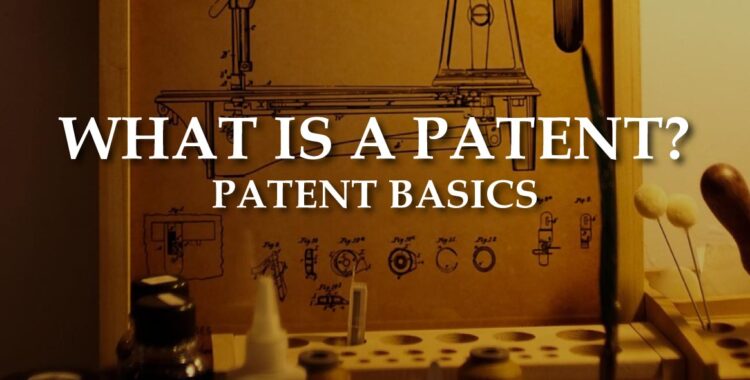Patent Basics: What is a Patent?
In intellectual property, patents stand as a cornerstone, offering inventors and businesses the exclusive right to make, use, sell, and distribute their inventions for a limited period. Typically, this exclusivity extends for 20 years from the filing date of the patent application, ensuring that the patent owner can reap the rewards of their innovation without fear of unauthorized use. The United States Patent and Trademark Office (USPTO) plays a crucial role in the granting of patents, which cover a broad spectrum of innovations, including processes, machines, articles of manufacture, compositions, and ornamental designs.
Table of Contents
- Types of Patents
- The Importance of Patents for Inventors and Businesses
- How to Apply for a Patent
- Protecting Your Patent: Understanding Patent Infringement
- The Role of Patent Attorneys in Securing Patents
- Conclusion: Seek The Support Of An Experienced Patent Attorney
Types of Patents
Understanding the different types of patents is crucial for inventors, entrepreneurs, and business owners looking to protect their intellectual property. The United States Patent and Trademark Office (USPTO) issues three main types of patents: utility patents, design patents, and plant patents. Each type serves a specific purpose and offers protection for different aspects of an invention or discovery.
Each patent type comes with its specific application requirements, examination process, and legal implications. Therefore, understanding the nuances of each patent category is essential for effectively navigating the intellectual property landscape. This knowledge, combined with the expertise of specialized patent attorneys, can significantly enhance an inventor’s ability to protect and capitalize on their inventions, securing a competitive edge in their respective industries.
Utility Patents
Utility patents are the most common type of patent. They are granted for new and useful inventions or discoveries of processes, machines, articles of manufacture, or compositions of matter, or any new and useful improvement thereof. Utility patents protect the way an invention is used and works. They can cover a wide range of inventions, including technological advancements, software, chemical formulas, and medical devices. The term of a new utility patent is typically 20 years from the date on which the application for the patent was filed in the United States, subject to the payment of maintenance fees.
Design Patents
Design patents are granted to inventors of new, original, and ornamental designs for an article of manufacture. This type of patent protects the appearance or aesthetic aspect of a product, not its functional features. Design patents are crucial for industries where the product’s look can be a critical factor in the consumer’s decision-making process, such as fashion, furniture, and consumer electronics. The term of a design patent is 15 years from the date of grant, and no maintenance fees are required.
Plant Patents
Plant patents are awarded to anyone who invents or discovers and asexually reproduces any distinct and new variety of plant. This includes cultivated sports, mutants, hybrids, and newly found seedlings, other than a tuber-propagated plant or a plant found in an uncultivated state. The protection covers the plant’s genetic makeup and its particular characteristics. The term of a plant patent is 20 years from the filing date of the patent application, and, like design patents, no maintenance fees are required.
The Importance of Patents for Inventors and Businesses
For inventors, entrepreneurs, and business owners, patents are invaluable assets. They not only protect innovative ideas from being copied but also enhance the marketability of products, potentially leading to higher profit margins. In the competitive landscape of small businesses, patents serve as a critical tool for securing a niche market or establishing credibility and authority in a particular field.
How to Apply for a Patent
Applying for a patent requires a thorough understanding of the patent laws and a meticulous approach to detailing the invention. The process involves several steps, starting with a patent search to ensure the uniqueness of the invention, followed by the submission of a detailed application to the USPTO. The application must include a full description of the invention, claims that define the scope of patent protection sought, and, if applicable, drawings. For those unfamiliar with the intricacies of patent applications, the assistance of experienced patent attorneys is invaluable.
Protecting Your Patent: Understanding Patent Infringement
Patent infringement occurs when another party makes, uses, sells, or offers to sell a patented invention without permission from the patent holder. This unauthorized use can lead to complex legal disputes, which require a robust defense to protect the patented invention. Awareness and vigilance are crucial for patent owners to ensure their intellectual property rights are not violated.
Intellectual Property Playbook
An Entrepreneur's Guide To Patents, Trademarks, and Copyrights GET THE PLAYBOOK
The Role of Patent Attorneys in Securing Patents
Specialized legal professionals called patent attorneys play a pivotal role in navigating the complexities of patent laws and the application process. Their expertise is not only beneficial in securing patents but also in advising on patent strategy, conducting infringement analyses, and representing clients in legal matters related to patents. The specialized focus of firms like Kaufhold & Dix ensures that clients receive skilled, reliable, and proficient counsel tailored to their specific intellectual property needs.
Conclusion: Seek The Support Of An Experienced Patent Attorney
Patents are a key element of intellectual property that provide inventors and businesses with exclusive rights to their innovations. Understanding the types of patents, the application process, and the importance of legal protection against infringement is essential for leveraging patents to their fullest potential. With the support of experienced patent attorneys, inventors, and small businesses can navigate the patent system effectively, securing their place in the market and safeguarding their intellectual achievements.
Kaufhold & Dix, with over 20 years of experience and more than 1,900 patents obtained for clients, stands as a beacon of expertise in the field of patent law. Our approach, emphasizing specialized focus and affordable flat fee services, ensures that inventors and small businesses have access to high-quality patent counsel without the fear of hidden costs.
References
- World Intellectual Property Organization (WIPO). [Patents](https://www.wipo.int/patents/en/).
- United States Patent and Trademark Office (USPTO). [Patent Basics](https://www.uspto.gov/patents/basics).
- Investopedia. [What Is a Patent?](https://www.investopedia.com/terms/p/patent.asp).
- National Inventors Hall of Fame. [What Is a Patent?](https://www.invent.org/blog/intellectual-property/patent-definition).
- Wikipedia. [Patent](https://en.wikipedia.org/wiki/Patent).
- FindLaw. [What Is a Patent?](https://www.findlaw.com/smallbusiness/intellectual-property/what-is-a-patent.html).
- Cornell Law School. [Patent](https://www.law.cornell.edu/wex/patent).








